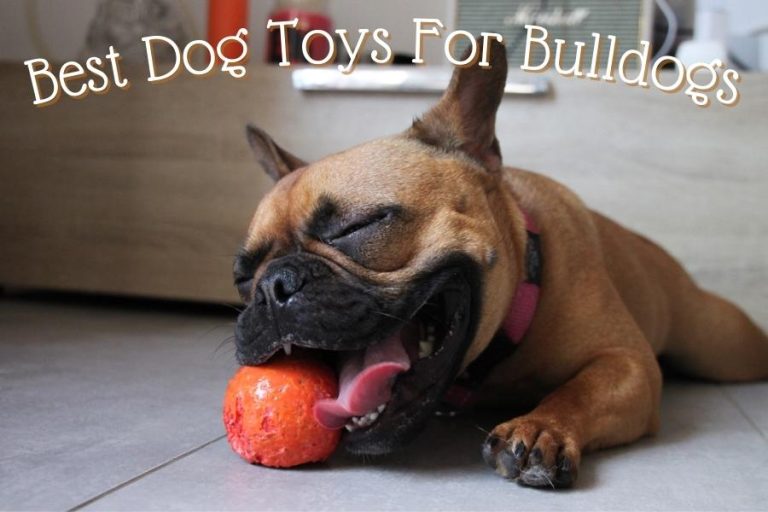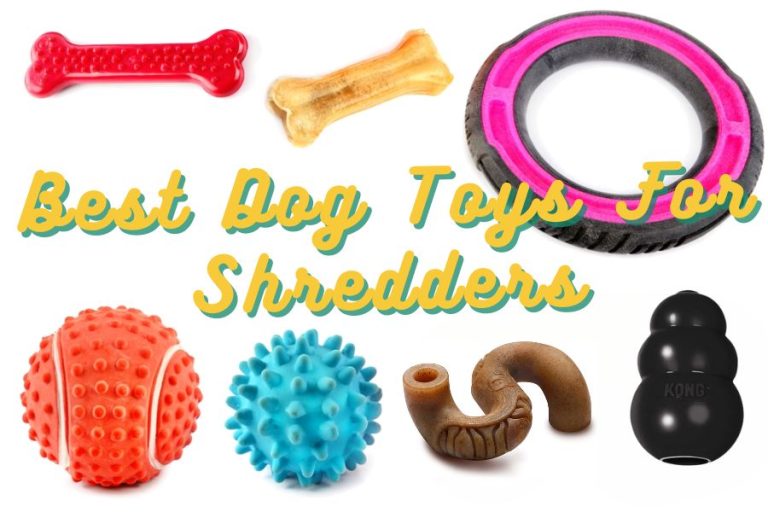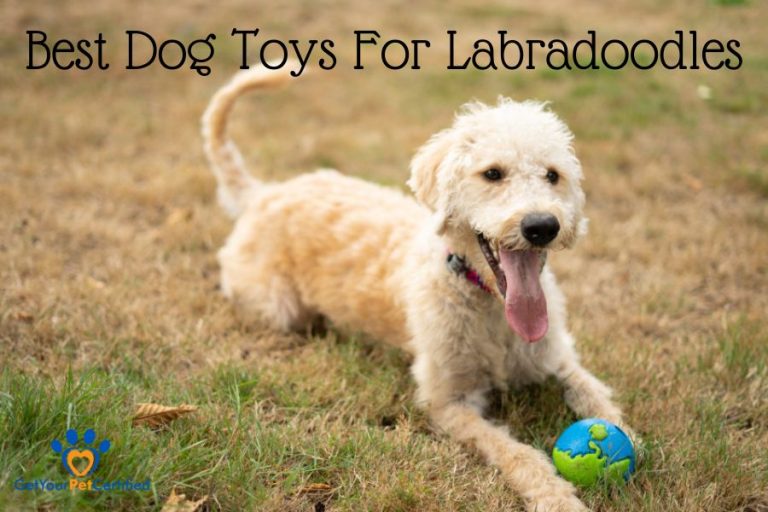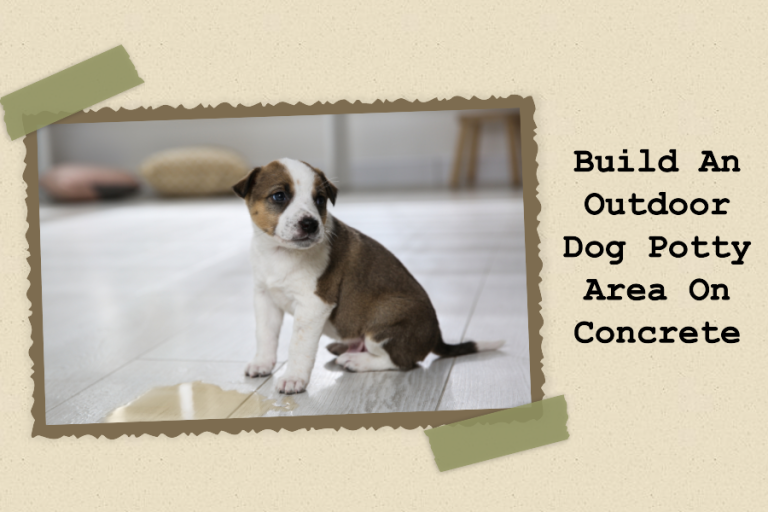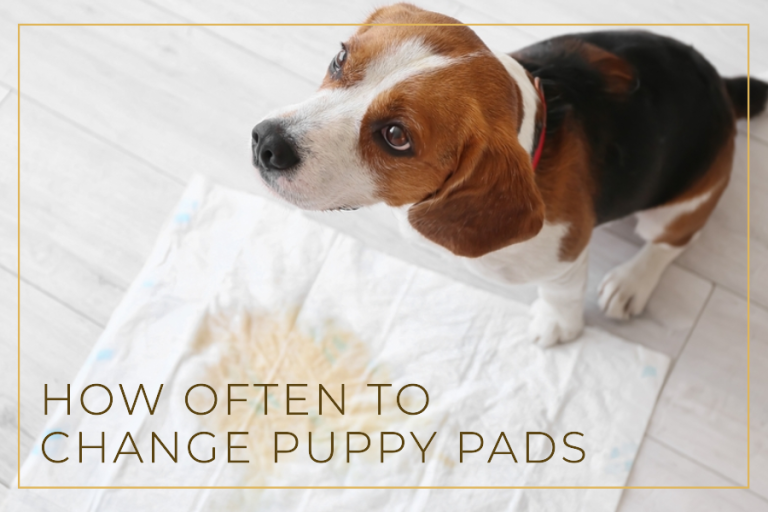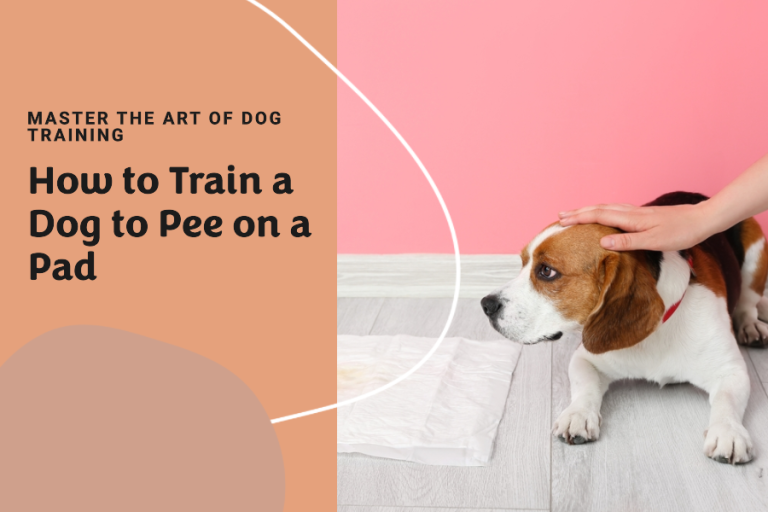Are Labradoodles Super Chewers? – Behind Super Chewer’s Reputation
Labradoodles are becoming more popular as family pets because they have happy attitudes and like to play. However, one major worry shared by Labradoodle owners is: Are Labradoodles super chewers?
In this article, we will understand the behavior and tendencies of Labradoodles to determine the truth behind their chewing habits. We will provide you with the information you need to manage Labradoodle chewing effectively.
Why Do Labradoodles Chew?
In this discussion, we will explore the factors that contribute to Labradoodles’ chewing habits:
Defining “super chewer”
In general, the term “super chewer” can refer to a dog who has an exceptionally strong or persistent urge to chew. They may possess a strong jaw, powerful teeth, and an insatiable desire to chew. This can lead to destructive behavior and damage to furniture, clothing, or other items in the home.
Chewing is a normal thing for dogs to do, and it serves different purposes at different times in their lives. Chewing helps Labradoodle dogs strengthen their mouths and ease the pain of teething as they grow and develop. Also, the amount of time spent eating can be affected by the breed, its energy level, its exercise routine, its mental stimulation, and its surroundings.
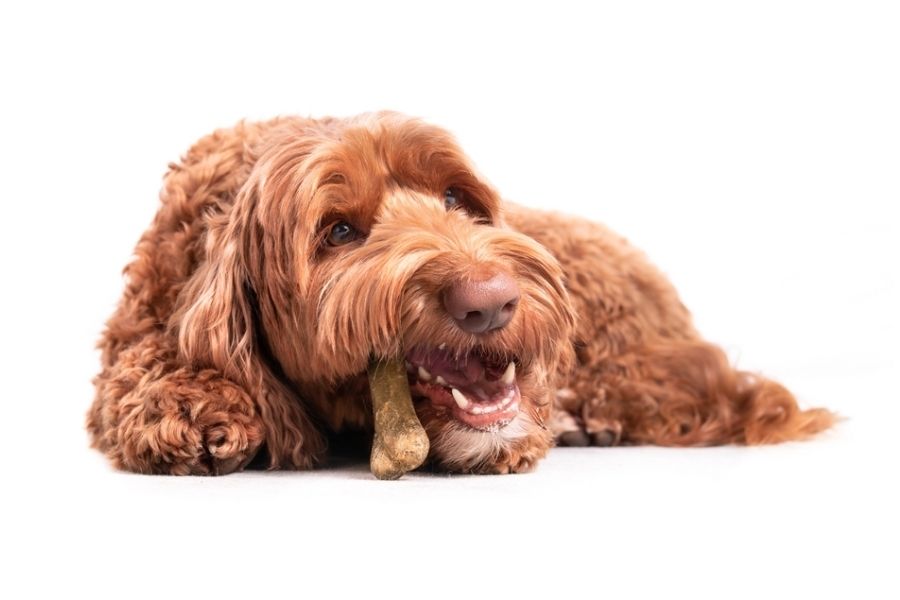
Origins of Labrador Retriever Chewing Behavior
The Labrador Retriever and the Poodle are the parents of the Labradoodle. Chewing behavior can be affected by genetic differences between the two species.
Labrador Retrievers were first bred to be retrievers and hunting dogs, so it is in their nature to carry things in their mouths. On the other hand, Poodles, who are known for being smart and active, may chew as a way to stimulate their minds and get some exercise.
When these traits are all present in a Labradoodle, the dog may have an unwelcome tendency to chew.
Even though there may not be specific studies or data showing that Labradoodles are more destructive chewers than other types, this does not mean that this is not the case. Understanding these things and how they affect Labradoodles can help pet owners deal with and change this behavior.
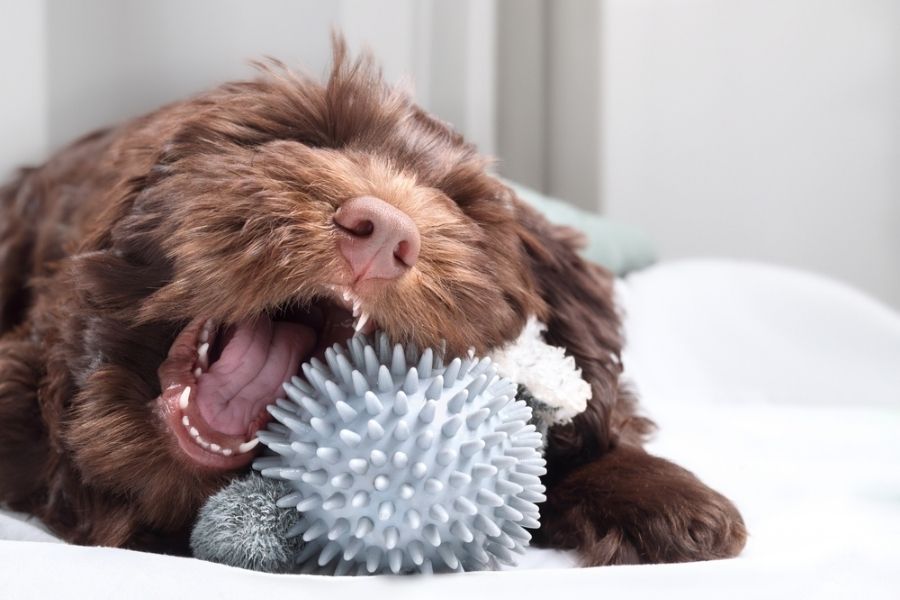
Health Consequences of Excessive Chewing
Here are some potential health consequences associated with a Labradoodle’s excessive chewing:
Choking hazards
Chewing on small or inappropriate objects can pose a choking hazard for Labradoodles. Swallowing or getting an unusual object lodged in the throat can lead to choking, and difficulty breathing if not addressed promptly.
Dental issues
The teeth can crack or break, the enamel can wear down, and the gums might get injured from persistent gnawing on hard items. This can be quite uncomfortable and could lead to infections if not treated.
Behavioral issues
Excessive chewing may be a symptom of underlying behavioral issues such as anxiety, boredom, or frustration. If left unaddressed, these issues can negatively impact a Labradoodle’s overall well-being and potentially lead to other health problems.
Toxicity
Labradoodles may chew on household items or plants that can be toxic to them. Ingesting toxic substances or plants can lead to poisoning, causing a range of symptoms depending on the specific toxin involved.
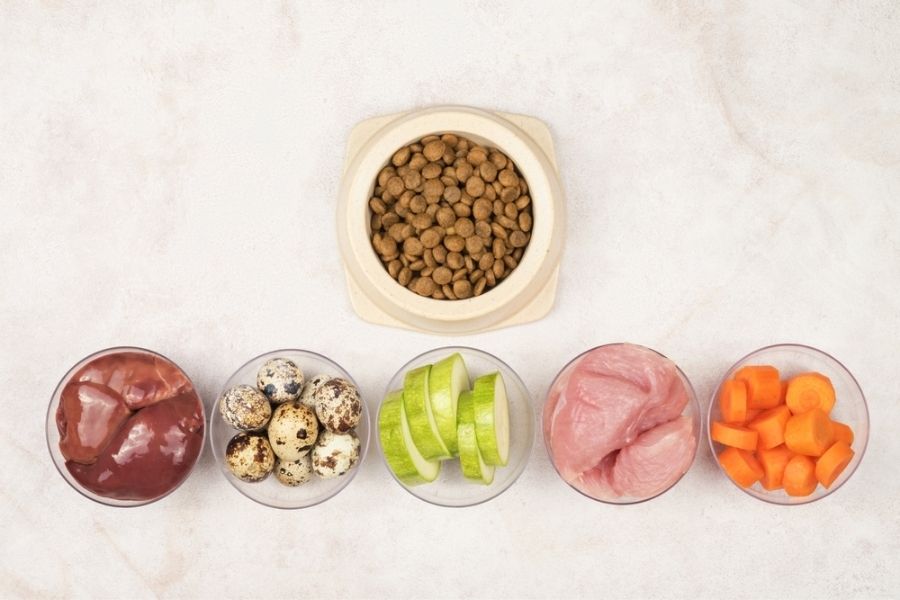
Breed-specific Dietary Considerations
Certain dietary considerations can indirectly contribute to their overall well-being and potentially affect their chewing habits.
Here’s a sample dietary plan for a week that incorporates these considerations:
Breakfast:
- Serve a portion of high-quality, balanced dry kibble appropriate for your Labradoodle’s size and age.
- Present a food puzzle toy stuffed with a mixture of their regular dry kibble and a small amount of peanut butter.
Lunch:
- Offer a dental health-promoting treat or chew specifically designed to reduce plaque and tartar buildup.
- Offer a frozen Kong toy filled with a mixture of their regular dry kibble and small pieces of carrot or apple.
Dinner:
- Provide a meal of wet dog food mixed with a small amount of mashed sweet potato or steamed vegetables for added nutrients and variety.
- Serve a homemade meal of cooked, lean ground turkey or beef mixed with steamed broccoli and a small amount of mashed pumpkin.

How To Train Your Labradoodle To Stop Chewing
We suggested some specific activities that can provide adequate outlets for your Labradoodle’s energy and help prevent excessive chewing:
Use positive reinforcement
Encourage your Labradoodle with food, praise, and playtime when they choose acceptable chewing toys over household items. They are more likely to select healthy foods and toys to chew on if they are positively reinforced for doing so.
Provide appropriate chew toys
Make sure your Labradoodle has plenty of dog-friendly chew toys to choose from, including some tough ones. Provide a range of textures, sizes, and shapes to suit their individual tastes. Get them to stop chewing on furniture and use these toys instead.
Exercise and Mental Stimulation
Addressing the importance of physical exercise and mental stimulation in Labradoodles’ lives can significantly impact their chewing behavior. Providing adequate outlets for their energy, like fetch or frisbee, can help prevent excessive chewing.
Redirect their attention
If you see your Labradoodle chewing on an inappropriate item, gently but firmly divert its attention to an appropriate chew toy. Show your excitement and give them praise when they start playing with the toy.
Play with your Labradoodle
Playing with your Labradoodle on a regular basis will help them burn off extra energy and keep their minds engaged. Provide problem-solving toys like puzzle games, fetch, and tug-of-war. Exercise on both a mental and physical level can reduce boredom chewing.
Supervise and manage their environment
Always keep an eye on your Labradoodle and make sure he or she can’t get into anything dangerous while you’re teaching him or her. While they are still learning proper chewing etiquette, restrict their access to particular areas of the house using baby gates or crate training.


